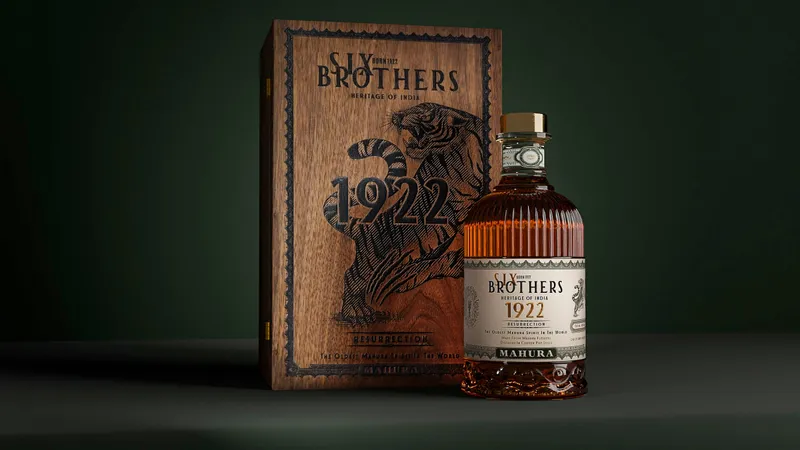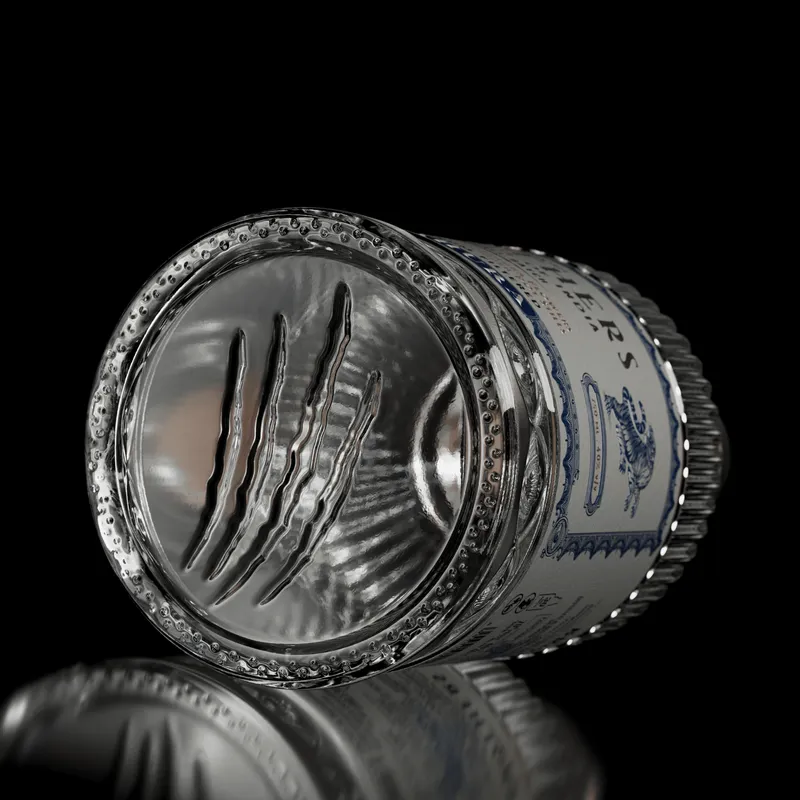India’s forgotten spirit mahua makes a comeback
Maharashtra’s South Seas Distilleries, helmed by the Chinoy family, is on a mission to make the indigenous spirit relevant again. Can mahua be India’s very own global spirit, comparable to tequilas and mezcals?
Mahua or mahura (as it is called in Maharashtra), a tropical tree native to India and its neighbouring countries, has been long used for multiple purposes.
Mostly popular in the tribal belt of Central India, mahura, also known as the Indian butter tree, has always had cultural and economic significance. The seeds of the tree have been used for ages to make oil and soaps and cure skin ailments, while its dried flowers are used to make pickles and spirit.
“Mahura spirit is not new. It is just forgotten,” says Hamavand Chinoy, Director of South Seas Distilleries—one of India’s oldest malt distilleries that is working towards making mahura relevant again.
Many reasons have contributed to the decline of this indigenous spirit, once consumed by the royals and aristocrats. The most prominent factor is that the tree was considered sacred by the tribals, and the British banned it, under the pretext that it was a ‘dangerous intoxicant’, under the laws of the Bombay Abkari Act of 1878 and the Mhowra Act of 1892, during their rule in India.

Oak barrels at South Seas Distilleries
Vikram Achanta, Founder and CEO of Tulleeho (beverage education, training and consulting firm) and Co-founder of 30BestBarsIndia, says, “Indigenous Indian spirits like mahua and feni remained unexplored, not just globally but even within India, because they were once banned from production under various laws, and later classified as ‘country liquor’. This placed them in a different excise bracket, effectively downgrading their reputation.”
However, in the quaint town of Dahanu in Maharashtra, South Seas Distilleries, helmed by the Chinoy family, is now on a mission to resurrect the reputation of mahura.
A century-old heritage
Recently, in a closed-door event in Mumbai, mother-son duo, Rupi and Hamavand Chinoy revealed the Six Brothers 1922 Resurrection—considered the world’s oldest matured mahura spirit, and Six Brothers Small Batch (Original), touted to be India’s first luxury heritage spirit.

The limited 102 bottles of Six Brothers 1922 Resurrection, considered the world’s oldest matured mahura spirit, has been alloted at Rs 1,02,000, each
South Seas Distilleries has a long connection with the mahura flower that spans over a century. It is a pivotal player in the Indian alco-bev industry, having mastered the art of maturation, with more than four decades of experience.
Founded in 1922 by Hamavand’s great-grandfather, Jehangirji Behramji, along with his five brothers, South Seas Distilleries introduced the mahura spirit—distilled entirely from flowers, before the entry of the foreign liquor category in India. Back then, the spirit was highly popular among the royal families and aristocrats of Aswa, Dahanu. But then came the Maharashtra Prohibition Act of 1949, putting an abrupt end to South Seas Distilleries’ operations.
In 1975, Jehangirji revived the distilleries, after the prohibition was abolished.
Over the years, Hamavand’s father, Viraf Chinoy, expanded the legacy of South Seas Distilleries. He established India’s most extensive luxury malt distilleries, supporting the largest malt brands of the country as a B2B player.
“My father believed that Indian single malts and heritage spirits would one day rival the world’s best, long before the category was recognised in the country,” Hamavand tells YS Life.
“Resurrecting this category is a tribute to our forefathers who began this journey,” he adds. The brand name pays tribute to Hamavand’s great-grandfather and his five brothers.
The limited release, Six Brothers 1922 Resurrection, has been aged in old casks for decades—a testament to Viraf’s vision. The limited 102 bottles of this spirit have been allotted, each priced at Rs 1,02,000.
“The spirit bridges the gap between traditional white spirits and whiskey. It offers the palate, appearance, and aroma of a finely aged malt, with a completely unique flavour profile. My father defines it as ‘liquid gold,” elaborates Hamavand.
The Six Brothers Small Batch (original), on the other hand, is double-distilled in copper pot stills and platinum-filtered to achieve a crisp, balanced texture. The spirit is currently available in Maharashtra and comes in a 750-ml bottle for Rs 2,491. It will soon be made available across Goa and Haryana as well.

Six Brothers Small Batch (Original) is touted to be India’s first luxury heritage spirit
A cool incubator for chefs: The Courtyard is shaping Bengaluru’s culinary revolution
This particular variant, tasted by YS Life, is as versatile as any other white spirit can be, and is suitable as a sipping spirit (we recommend this). It can also be used as pouring liquid for cocktails—from martinis to margaritas and picantes.
The bottle of the Six Brothers Small Batch, designed by Creative Director Rupi, conveys the history, legacy, and story behind the company’s association with the mahura spirit. The six pairs of eyes at the base represent the six brothers, all of them looking up to the all-seeing eye on the stopper—symbolising the founders’ unified vision. The tiger on the label, and its claw marks on the base, represent the resilience to continue the mahura legacy, after all this while.
“The ribbed glass paired with an elegant off-white and deep blue colour scheme presents a vintage aesthetic. The bottle is designed to represent the beauty of the liquid inside,” explains Rupi.
India’s answer to tequila?
For those unfamiliar with the process of how it’s made, mahura spirit is made from the flowers of the mahura tree that fall off. Once collected, the dried flowers are fermented and distilled to extract the spirit—a process similar to how tequila is bottled.
“Our versatile mahura spirit is our answer to having India’s very own global spirit, and is comparable to premium tequilas and mezcals,” says Hamavand.

The tiger claw marks on the base of the bottle represent South Seas Distilleries' resilience to continue the mahura legacy, after all this while
“With the global audience’s lens shifting to niche liquors—for long the spotlight has shone on whiskies and gins—the time is ripe for a mahura to truly shine on the world stage,” says Vikram of Tulleeho.
A recent instance tracing mahura’s journey to the global stage is the export of dried mahura flowers to France, where they have been fermented and distilled into a brand called ‘Mah’.
The revival of mahua can be compared to how tequila and agave became Mexico’s representation on the global stage. Vikram cites the example of Handshake Speakeasy, a bar in Mexico City, which was crowned #1 in World’s 50BestBars. This, he says, is a result of its strong adoption and promotion of the city’s native agave spirits. “With the Indian alco-bev market expected to add a value of $7 billion by 2028, indigenous spirits will certainly play a role in driving competition,” Vikram adds.
“The reclassification of feni (a heritage spirit made from cashew or coconut) and mahura from country liquor to IMFL (Indian-made foreign liquor) is giving them a new status under excise laws,” he says.
Leading culinary and cocktail bars are playing an important role in changing the perception about indigenous spirits and educating consumers about how best to appreciate them. Goan bars, for example, are focusing on seasonal feni and urak, while bars like Bandra Born are facilitating conversations around mahura in Mumbai. “The receptiveness with mixologists has been very good and they are crafting a diverse range of cocktails that highlight mahura’s unique profile,” says Hamavand.
Along the coast of Goa, cashew feni has successfully earned a GI (geographic indication) status and coconut feni is moving in the same direction. Vikram believes, soon enough, mahua–which is already classified as a ‘heritage spirit’ in Madhya Pradesh–will get a huge status lift in India and globally as well.
(The copy was updated to correct a typo.)
Edited by Swetha Kannan







